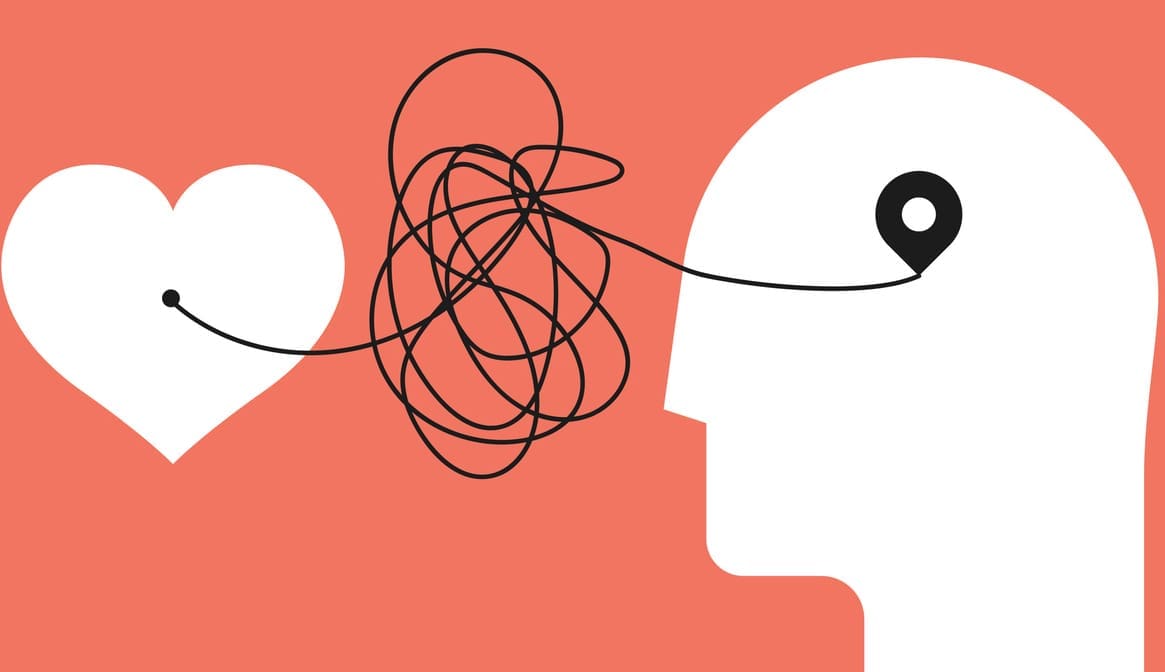Researchers have linked depression with several physical disorders, such as thyroid dysfunction. Is there also an association between depression and cardiovascular disease? We know the physiological responses that a heart condition can have on the body, such as pain, difficulty breathing, and swelling. But what kind of impact can cardiovascular disease have on mood? Also, can having depression contribute to a person developing cardiovascular disease?
Psychological factors, such as major depression and stress, are now known as risk factors for developing cardiovascular disease, which is as important and is independent of other well-known risk factors, such as hypertension, diabetes mellitus, and cigarette smoking. Depression is associated with poorer outcomes in those with cardiovascular disease. Both conditions have great socioeconomic importance given that depression and cardiovascular disease are two of the three leading causes of the global burden of disease. Better understanding of the association between the two can help us delineate the most effective and appropriate treatments.
Can Depression Increase the Risk for Cardiovascular Disease?
A study published in 2020 in the Journal of the American Medical Association found that depressive symptoms, even at low levels, are associated with increased risk of cardiovascular disease.
Here are a few aspects that may contribute to the impact of depression on cardiovascular disease:
The Influence of Behavior and Lifestyle
Depression can contribute to certain lifestyle behaviors, such as overeating or little to no exercise, that increase risk for developing or worsening cardiovascular disease. In a 2016 review article written by Dr. Arup K. Dhar and Dr. David A. Barton they note that there are “increased rates of smoking, alcohol intake, physical inactivity, and obesity” in depressed patients and a less likelihood to undergo the lifestyle changes necessary to treat cardiovascular disease. Depression is more prevalent in people who have suffered a major cardiac event, with up to 40% of patients meeting the criteria for depression. Cardiac patients with depression have worse outcomes, which leads to more deaths and repeated cardiovascular events. Bad habits associated with depression are a contributing factor that increases the likeliness of developing or worsening a cardiovascular disease, but there are also physiological differences in many patients with depression that boost the chances of developing a heart disease as well.
Physiological Differences in Depressed Patients
Individuals who are suffering from depression experience the physiological responses associated with stress in their bodies. For example, patients with depression have more cortisol in their bodies, which is dangerous to the Hypothalamic Pituitary Adrenal Axis, often causing “glucose intolerance, hyperlipidemia, and increased visceral fat mass,” all of which increases the risk of cardiovascular disease. People with depression also have increased platelet activation and inflammation, both of which increase the likelihood of developing cardiovascular disease. Studies have been done on the effects of anti-inflammatory medication on depression.
What Happens When Patients with Cardiovascular Disease Experience Depression?
Since there is a high prevalence of depression among patients with cardiovascular disease, researchers have been prompted to discover the true link between the two. Studies have found that at least “20% of patients who sustain a myocardial infarction meet the criteria for a major depressive episode at the time of their cardiac event, and at least as great a proportion of those with heart failure are depressed.” The 2004 ENRICHD (Enhancing Recovery In Coronary Heart Disease) trial, found that 74% of patients who had recently suffered a myocardial infarction were diagnosed with depression. In addition, many people with no history of depression become depressed after suffering from a cardiac event or heart failure.
Patients with cardiovascular disease have an added layer of negative effects from depression, such as:
- Higher risk for a heart attack or heart failure
- Higher likelihood of developing blood clots or receiving coronary artery disease diagnoses
- Development of hypertension and possible irregularity in the heartbeat
- More likely to receive a poor health prognosis and face an overall susceptibility to illness (i.e. more likely to catch a cold, experience inflammation, etc.)
- More often will engage in activities that limit the effectiveness of heart treatment
During recovery from cardiac surgery, depression can intensify pain, worsen fatigue and sluggishness, or cause a person to withdraw into social isolation. Patients who have had CABG (coronary bypass surgery) and have untreated depression after surgery also have increased morbidity and mortality. Since depression impacts the treatment and recovery of a patient with cardiovascular disease, the American Heart Association encourages that patients answer specific screening questions about depression and seek treatment if warranted.
How Can Mid City TMS Help?
The effects of depression have a huge impact on a person’s overall health. Thankfully, there are many treatments for depression, such as antidepressant medications, psychotherapy, TMS and Esketamine (Spravato). Patients at Mid City TMS receive treatment with the best options for them. Contact Mid City TMS to discuss the treatment options available to you.



